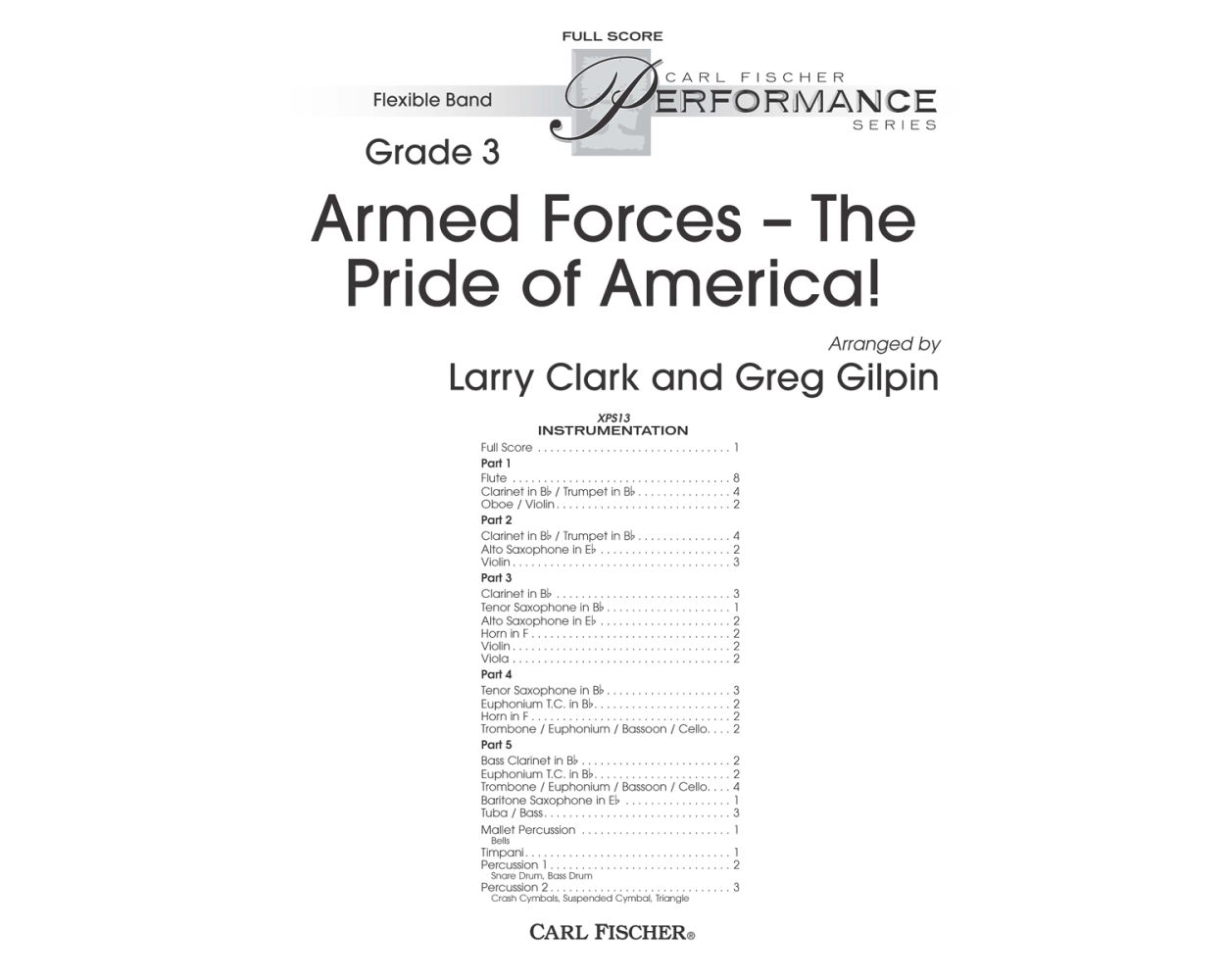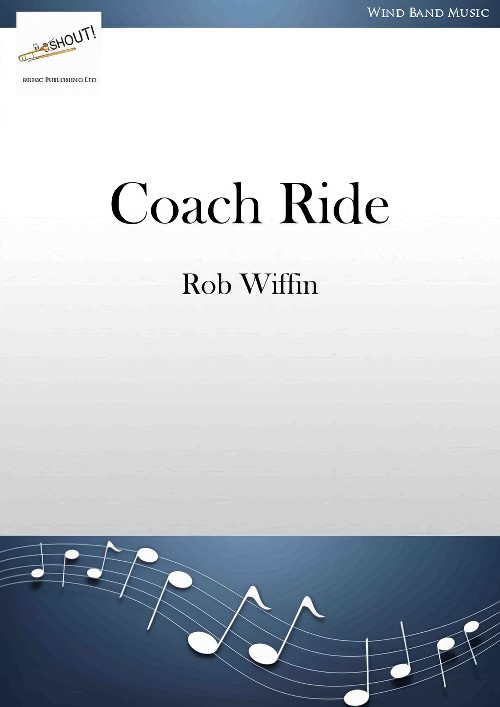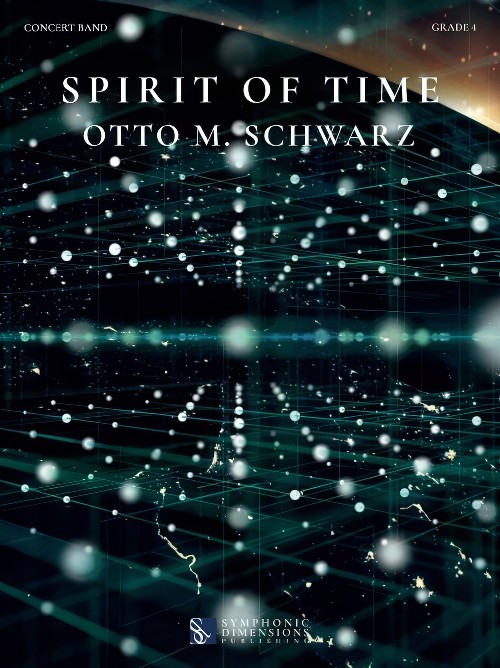Results
-
£105.00
The Ocean Beast (CB) - Pimpanit Karoonyavanich
If we hear about a beast, we would imagine a powerful and fierce creature. This composition work depicts a beast who's cursed to live under the ocean. Because everyone thinks that he's a heartless and evil beast, they run away from him every time they see him. Sometimes he appears at the surface of the sea and hope that he would be able to make friends with human. But all he got were severe wounds those made by the sailors who thought that he wanted to attack them. Nobody knows... that all he wants, is just only someone who just treat him like the others, not a beast.
Estimated dispatch 7-14 working days
-
£87.00
Milord (CB) - Marguerite Monnot & George Moustaki - Mathias Vleugels
"Milord" is a 1959 song (lyrics by Georges Moustaki, music by Marguerite Monnot), famously sung by dith Piaf. It is a chanson that recounts the feelings of a lower-class "girl of the port" who develops a crush on an elegantly attired apparent upper-class British traveller (or "milord"), whom she has seen walking the streets of the town several times (with a beautiful young woman on his arm), but who has not even noticed her. The singer feels that she is nothing more than a "shadow of the street".
Estimated dispatch 7-14 working days
-
 £55.00
£55.00Distortion
Distortion is a fun and unique composition written for young band and electric guitar, inspired by the author's grandson Owen, who plays trumpet and guitar. The piece features electric guitar with distortion, offering an exciting and fresh experience for both band and beginning guitarists. The guitar part, which primarily consists of power chords, includes a short solo that can either be improvised or played as written. A drum set part is included, but it's recommended to feature either the drum set or percussion, not both. This piece is a break from traditional wind band literature and allows for a creative, dynamic performance that will excite both performers and audiences.
Estimated dispatch 12-14 working days
-
 £48.00
£48.00Napoleon's Last Dance - Randy Navarre
Let's introduce 3/4 time: a waltz. But not just any waltz! This song is a bit mysterious, and gentle with both soft and bold sounding sections. The harmonies are a little different than you may hear at this grade level. Secondary dominants and a few other surprising chords sound out at times. You will impress your audience!
Estimated dispatch 12-14 working days
-
 £39.00
£39.00The Alchemist's Touch
Drummer's Delight is a grade one piece featuring the percussion that will be fun for your students and will enhance early rhythm instruction. Short enough to give students a feeling of accomplishment but not long enough to exhaust them, this feature will give your winds a little break while also giving your percussionists a moment to shine.
Estimated dispatch 12-14 working days
-
 £48.00
£48.00The Holly and the Ivy
This setting of the beautiful holiday classic is accessible for very young bands. Its memorable melody, notated in a comfortable range, is passed around the sections of ensemble as the other parts play accompaniments that are interesting, yet not difficult. Written in bridge form, the piece begins softly, with soft sleigh bells and clarinets below the break, adding flutes, then brass, then building to a minor section and a very short percussion feature, making it a great opportunity introduce students to this form!
Estimated dispatch 12-14 working days
-
 £44.00
£44.00Cool It! - Randy Navarre
All Grade 's are playable with only 5 instruments: 1 flute, 2 clarinets, 1 alto saxophone, and 1 trumpet. Those instruments are not always doubled elsewhere. The song is written in such a way, it will sound good with a limited instrumentation and richer and fuller as your band gets bigger. All Grade 's by Northeastern Music are playable after only 5 - 7 lessons. At this performance level, no clarinet crosses the break. Cool It! is a twelve bar blues designed to drill in counting rhythms while the students are having a blast. The 1st trumpet's highest note is Bb. Directors often allow students to start learning to improve on this easy piece. Yes, at this very beginning stage! This remains one of our best sellers in this series.
Estimated dispatch 12-14 working days
-
 £110.00
£110.00Armed Forces The Pride of America! - Boskerck
With theme songs from all five branches of the armed forces, stirring march themes from John Philip Sousa, and both the Pledge of Allegiance and National Anthem of the United States of America, Armed Forces - The Pride of America is sure to become a staple for patriotic programs. Arrangers Larry Clark and Greg Gilpin have taken great care in creating a uniquely flexible setting both in instrumentation and performance. Designed to be performed by band, orchestra, or chorus, separately or in any conceivable combination, ensembles need not be limited by size or instrumentation. Careful attention has also been paid to playability for ease of performance and rehearsal. An optional ending allows even further flexibility when performance time is a consideration and an optional narrator part can be used to invite rousing audience participation. This popular medley is sure to bring a stunning performance in almost any setting.
Estimated dispatch 12-14 working days
-
 £36.95
£36.95Coach Ride (Concert Band - Score and Parts) - Wiffin, Rob
Coach Ride is a manic journey on a bus, obviously not taking in the M25! This fast and furious little piece in the style of Shostakovitch was originally written as an encore for the Buckinghamshire Symphonic Wind Ensemble. It is a romp of a coach ride during which the nursery rhyme The wheels on the bus go round and round makes an appearance.Duration: 3.30
Estimated dispatch 7-14 working days
-
 £159.99
£159.99Spirit of Time (Concert Band - Score and Parts) - Schwarz, Otto M.
Zeitgeist; transformations; a departure for new shores... these are buzzwords we often encounter nowadays. Above all in this digital age, it is essential that we face changes positively and that we make the very best of them. Music is emotion! Otto M. Schwarz begins many of his lectures with this phrase, and this is exactly what we feel in this new concert work. Rapid, and full of energy, is the leap into a new chapter, wonderful opportunities are waiting to be discovered in uncharted lands. But change is not only loud and momentous. The creative power of the future lies dormant in the inventive spirit of the individual, quietly, thoughtfully, silently and alone! The final sequence of this work is all about good vibes: it lights the way to a positive future and stands for the dawn of a new era!Duration: 9.45
Estimated dispatch 7-14 working days
